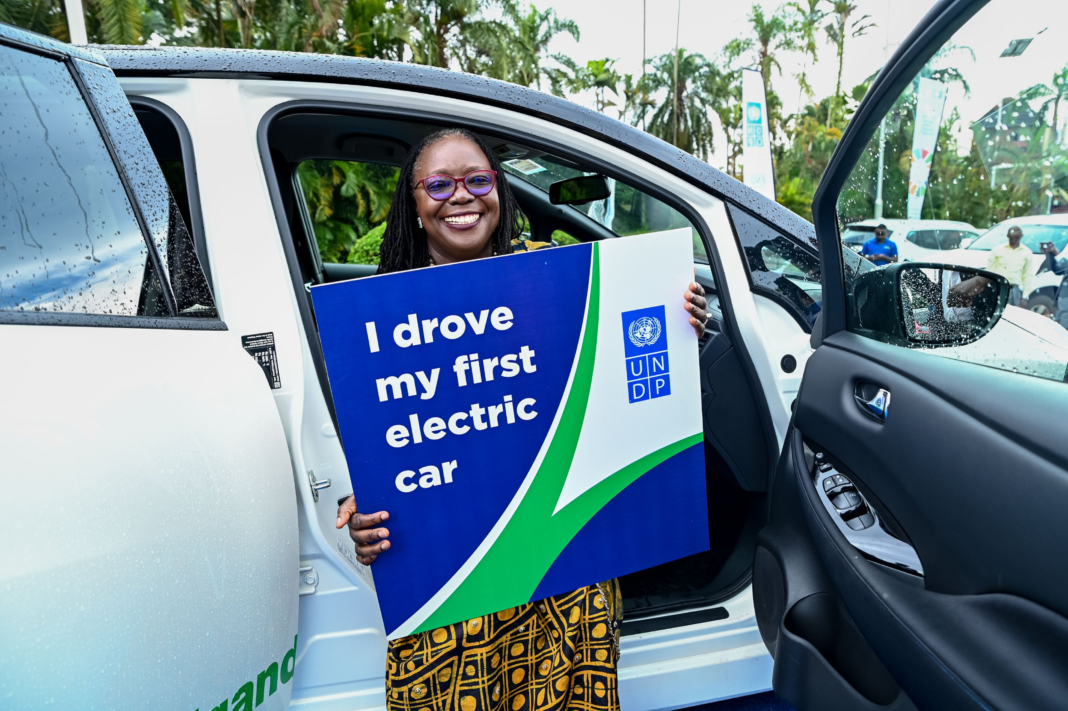The government of Uganda has finalized plans to set up 10 pilot electric vehicle charging stations within Kampala Metropolitan through its Clean Energy Access Project, Dr. Peter Aimat Lokeris, the Minister of State for Minerals has said.
Speaking at the Energy Efficiency and Electric Mobility Conference 2023 at Speke Resort, Munyonyo, Mr. Lokeris said that access to electricity, and affordability of Electric Vehicle (EV) charging infrastructure are the two major barriers to Electric Vehicles adoption in Uganda.
“In order to provide for electric vehicle charging, the Ministry of Energy and Mineral Development has embarked on developing a framework for setting up electric vehicles charging stations,” the Minister said.
He added that the absence of electric vehicles on the market creates a delay in investment for electric vehicle charging infrastructure and vice versa, making the drop into a chicken and egg dilemma.
“Energy efficiency is paramount in offering cost reduction, reduced dependence on imported energy, and environmental preservation. We must intensify efforts in promoting electric mobility and developing charging infrastructure,” Dr. Lokeris said.
He said the Ministry of Energy has embarked on the Development of a master plan and feasibility study for electric vehicle Charging infrastructure including designing a roadmap for smart, scalable, and replicable electric vehicle charging business propositions.
This plan, Minister Lokeris said, will also take into account standards and protocols for electric vehicle chargers and include exploring the electric vehicle charging market opportunities in Uganda for both local and international companies.
Mr. Lokeris urged energy sector players to double their efforts in the promotion of electric mobility by improving the framework conditions for the development of electric vehicle charging infrastructure.
“With the ever-increasing cost of energy, we find ourselves experiencing energy shortages, yet we have to continuously advocate for the conservation of our environment, and reduce our carbon emissions. One sure answer is Energy Efficiency, which is the first fuel available for a clean and sustainable energy future and reduced environmental energy-related impacts,” he said.
Eng. Bateebe Irene Pauline, the Permanent Secretary at the Ministry of Energy and Mineral Development said the government has laid out a comprehensive strategy to promote energy efficiency and e-mobility, including the Energy Policy of 2023, the draft EECD Bill, and the Energy Efficiency Roadmap for Uganda of 2017.
Key among other policies, Eng. Bateebe said that the government has set up Minimum Energy Performance Standards (MEPS) for energy-using appliances; implemented Energy Management Systems and undertaken Capacity Building for energy efficiency professionals.
She said the ministry has also developed guidelines for Energy Efficiency Certification and Appliance Energy Performance Labelling to guide energy efficiency improvements in the various sectors of the economy.
Ms. Elsie Attafuah, the UNDP Resident Representative revealed UNDP had launched its first electric car, a major step forward for Uganda’s transition to a clean energy future.
She said that Uganda’s transport sector emissions are a major public health threat, causing non-communicable diseases and putting a huge strain on the health budget, and reasoned that transitioning to e-mobility is a chance for Uganda and Africa to seize control of their own resources.
“By reducing our reliance on fossil fuels, we can improve air quality and reduce the risk of respiratory diseases. This can lead to significant savings on healthcare costs,” she said.







